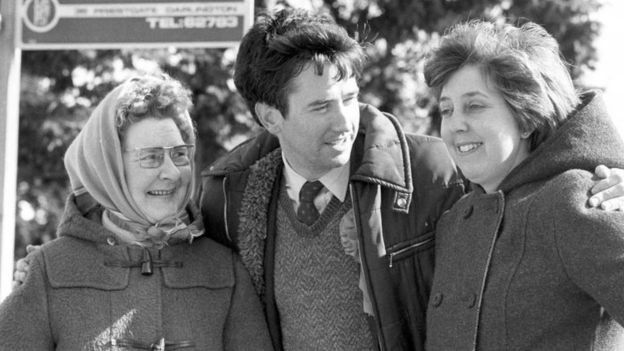Sir Michael Fallon resigns, saying his conduct 'fell short
He told the BBC that what had been "acceptable 15, 10 years ago is clearly not acceptable now".
He is the first politician to quit following recently revealed claims of serious sexual abuse in Parliament.

The BBC understands fresh claims about his behaviour were raised on Wednesday, but Downing Street refused to comment.
Political editor Laura Kuenssberg said that sources close to him do not believe he is "some kind of predator", but that he had not felt that he could guarantee that he would be able to account for every encounter in his long ministerial career.
Theresa May said she appreciated the "serious manner" in which Sir Michael had considered his Cabinet role.
She also praised the "particular example you wish to set servicemen and women and others".
'Below high standards'
In his resignation letter, Sir Michael said: "A number of allegations have surfaced about MPs in recent days, including some about my previous conduct.
- As it happened: Reaction to Fallon's resignation
- Kuenssberg: Fallon's 'painful' decision to resign
- Take sex abuse claims to police, May urges
"Many of these have been false but I accept that in the past I have fallen below the high standards that we require of the Armed Forces that I have the honour to represent."
Sir Michael told the BBC it "was right" for him to resign and said: "The culture has changed over the years, what might have been acceptable 15, 10 years ago is clearly not acceptable now.
"Parliament now has to look at itself and the prime minister has made very clear that conduct needs to be improved and we need to protect the staff of Westminster against any particular allegations of harassment."
When asked if he thought he should apologise, Mr Fallon said: "I think we've all got to look back now at the past, there are always things you regret, you would have done differently."
He added that it had been a "privilege" to have been defence secretary over the past three and a half years.
In response Mrs May accepted his resignation and paid tribute to "a long and impressive ministerial career - serving in four Departments of State under four prime ministers".
Sir Michael Fallon had an interrupted parliamentary career that spanned four decades and two constituencies.
In March 1983, he lost the Darlington by-election to Labour's Oswald O'Brien, only to win it 77 days later after Margaret Thatcher called a general election.
But in 1992 his career in government stalled after he lost his Darlington seat to Labour's Alan Milburn in the General Election.
He returned to Westminster in 1997 after being selected as the Conservative candidate for Sevenoaks when MP Mark Wolfson retired.
During the coalition government he was appointed minister for business and enterprise, and then minister for energy.
He was then appointed minister for Portsmouth in 2014 by David Cameron - a post which was created after the loss of jobs in the local shipyard at arms manufacturer BAE Systems.
In the same year he succeeded Philip Hammond as defence secretary.
The resignation comes a day after a spokesman for Sir Michael confirmed that he was once rebuked by a journalist, Julia Hartley-Brewer, for putting his hand on her knee during a dinner in 2002.
The spokesman said Sir Michael apologised when it happened.
Ms Hartley-Brewer, a former political editor of the Sunday Express and regular political commentator, told BBC Radio 4's The World Tonight: "If he has gone because he touched my knee 15 years ago, that is genuinely the most absurd reason for anyone to have lost their job in the history of the universe, so I hope it is not because of that."
Former Conservative leader Iain Duncan Smith said he was sorry to see Sir Michael go, but it showed leadership from the prime minister who "read the riot act" to her cabinet.
He told BBC Radio 4's The World Tonight: "Theresa May made it very, very clear… that it was simply unacceptable that people in positions of power over others should then abuse that position to solicit things that otherwise would not be granted to them."
Labour MP Ruth Smeeth told the BBC: "I think we're all very shocked this evening, however we've got to look at what happens next. For me, it's who is going to replace him, how quickly.
"There's a lot going on and this is not the time for instability at the top of the Ministry of Defence."
General Sir Mike Jackson, former head of the British Army, said members of the armed forces would be "sad" to see Sir Michael go.
He told the BBC: "It's clearly a personal decision he's come to, and so be it."
Following a range of recent allegations, including claims of a lack of support for those making complaints, Mrs May has written to party leaders calling for the "serious, swift, cross-party response this issue demands".
The prime minister said a "common, transparent independent grievance procedure" for all those who work in Parliament was needed and that it "cannot be right" for policies to vary between parties.
Labour, meanwhile, has launched an independent investigation into an activist's claim that she was discouraged by a party official from reporting an alleged rape at a party event in 2011.
[BBC SOURCES]


No comments